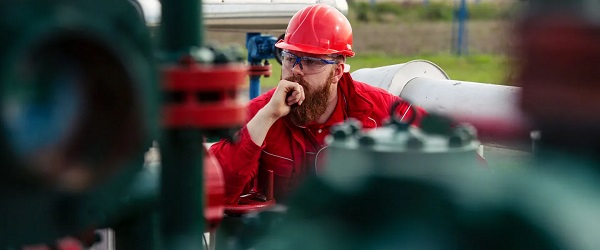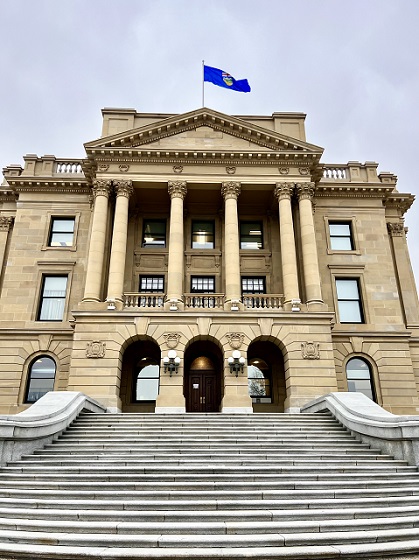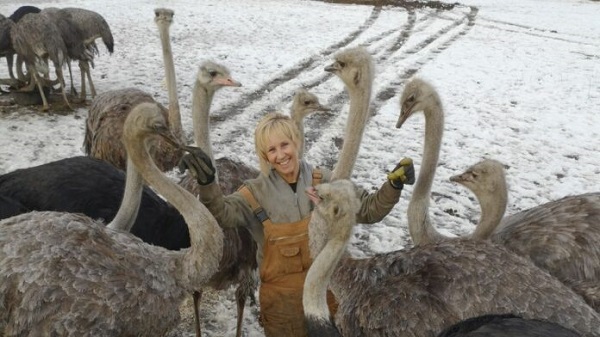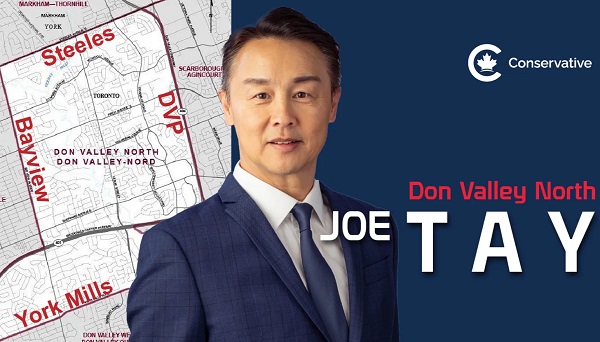Alberta
Hells Angels member arrested with handgun in Red Deer


|
|
Alberta
Carney government should end damaging energy policies amid separatist sentiment in Alberta

From the Fraser Institute
By Tegan Hill
Following last month’s Liberal election victory, and after a decade of damaging federal policies by the Trudeau government, some Albertans are calling for a referendum on separation. While Premier Danielle Smith said she does not support separation she “will honour” the referendum process. And according to a recent poll, more than one-third of Albertans are open to leaving Canada. But whether or not the referendum actually happens, one thing is clear—Albertans have reason to be frustrated with confederation.
In our current system, Ottawa collects taxes from people and businesses across the country then transfers that money to Canadians for federal and national programs including the Canada Pension Plan (CPP) and employment insurance. Albertans contribute disproportionately to this system thanks to the province’s relatively high rates of employment, higher average incomes and younger population.
For example, from 1981 to 2022 (the latest year of available data), Albertans’ net contribution to the CPP—meaning the amount Albertans paid into the program over and above what retirees in Alberta received in CPP benefit payments—was $53.6 billion. British Columbia was the only other province where workers paid more into the CPP than retirees received in benefits—and Alberta’s contribution was six times greater than B.C.’s contribution.
On equalization—Canada’s transfer program aimed at ensuring each province can provide comparable levels of public services—Alberta has not received payments since 1964/65. In 2022 (the latest year of available data), the federal government spent $21.9 billion on equalization while 13.5 per cent of total federal revenue came from Alberta, which means Alberta taxpayers contributed an estimated $3.0 billion to the equalization program that year—while receiving no payments.
More broadly, Alberta’s total net contribution to federal finances and national programs (that is, total federal taxes and payments paid by Albertans minus federal money spent or transferred to Albertans) was $244.6 billion from 2007 to 2022—more than five times more than the net contribution from British Columbians or Ontarians (the only other two net contributors) despite Alberta’s smaller population.
So that’s the reality—Alberta massively overcontributes to federal and national programs. But that’s not necessarily a problem, in and of itself. The problem is that despite Alberta’s outsized importance within Canada, Albertans have faced a barrage of federal policies that disproportionately and negatively impact the province including Bill C-69 (which imposes complex, uncertain and onerous review requirements on major energy projects), Bill C-48 (which bans large oil tankers off B.C.’s northern coast and limits access to Asian markets), an arbitrary cap on oil and gas emissions, numerous “net-zero” targets, and so on.
On the campaign trail, Prime Minister Mark Carney promised to keep the emissions cap and Bill C-69 (which opponents call the “no more pipelines act”). Yet in a recent interview with CTV, Carney said he will “change things at the federal level that need to be changed in order for projects to move forward” adding that he may eventually remove both the emissions cap and Bill C-69.
That would be welcomed news in Alberta, which continues to punch above its economic weight despite federal policies that prevent the province from reaching its full economic potential. And any policies that restrict Alberta ultimately limit prosperity in Canada.
Albertans may soon face a referendum on separation. The rest of Canada should understand why so many Albertans are frustrated with the status quo. Federal policies specifically target their province’s energy industry despite their disproportionate contribution to the federation. It’s time to undo these federal policies, for the benefit of all Canadians.
Alberta
Alberta Cabinet shuffle reflects new ministries. Adriana LaGrange in charge of “health care refocusing”

Premier Danielle Smith has made changes to cabinet to address key priorities of Albertans.
Following the conclusion of the spring sitting of the legislature, and the resignation of the Honourable Ric McIver from his cabinet position to serve as Speaker of the Legislative Assembly of Alberta, Premier Smith has made changes to her cabinet and caucus leadership.
The new cabinet comprises both seasoned and newly appointed ministers, reflecting Alberta’s diverse population. Together, they are committed to serving all Albertans and striving to unlock the province’s full potential. Those members taking on new roles include:
- Minister of Advanced Education, Myles McDougall
- Minister of Hospital and Surgical Health Services, Matt Jones
- Minister of Indigenous Relations, Rajan Sawhney
- Minister of Jobs, Economy, Trade, and Immigration, Joseph Schow
- Minister of Mental Health and Addiction, Rick Wilson
- Minister of Municipal Affairs, Dan Williams
- Minister of Primary and Preventative Health Services, Adriana LaGrange
- Minister of Tourism and Sport, Andrew Boitchenko
- Associate Minister of Multiculturalism, Mohammed Yaseen
- Associate Minister of Water, Grant Hunter
Additionally, Grant Hunter will be serving as the Chief Government Whip.
The Honourable Demetrios Nicolaides will be adding childcare to his portfolio and become the Minister of Education and Childcare. The Honourable Jason Nixon will also see his title changed to the Minister of Assisted Living and Social Services to reflect his oversight of Assisted Living Alberta.
“I’m eager to collaborate with this dedicated team to fulfill the commitments we made to Albertans during the last election. Our government has already addressed many key priorities of Albertans, but we know there is more work to do, and I’m excited to continue working alongside each of my cabinet colleagues as we move forward an ambitious agenda for Albertans.”
This new cabinet also serves as the critical next step in the journey to refocus Alberta’s health care system. Each of the four health care agencies – Primary Care Alberta, Acute Care Alberta, Assisted Living Alberta, and Recovery Alberta – are now established, and will now each have a corresponding minister responsible. Minister LaGrange will continue to oversee the health care re-focusing efforts.
“I’m pleased to continue the important work of re-focusing our health care system with the support of my colleagues. Moving forward, we will work together to ensure that patients in our health care system have an integrated seamless experience and get the care they need when and where they need it.”
Cabinet members will be tasked with working collaboratively to complete the important work that Albertans voted for, including continuing to grow the economy, keep life affordable, reform the health care system, fight crime, and defend Alberta from punitive federal government policies.
-

 Business2 days ago
Business2 days agoCanada drops almost all retaliatory tariffs on U.S.
-

 Alberta1 day ago
Alberta1 day agoAlberta Cabinet shuffle reflects new ministries. Adriana LaGrange in charge of “health care refocusing”
-

 Daily Caller1 day ago
Daily Caller1 day agoTrump Reacts To James Comey’s ‘8647’ Post
-

 Economy17 hours ago
Economy17 hours agoThe proof is in. Housing is more unaffordable than ever
-

 Daily Caller2 days ago
Daily Caller2 days agoGain of Function Advocate Now Has Keys To Fauci’s Old Agency
-

 Business2 days ago
Business2 days agoCarney should commit to Chrétien-style review of Trudeau’s decade-long bureaucratic expansion
-

 Business1 day ago
Business1 day agoUS Grocery prices plunge as inflation hits four-year low
-

 Red Deer2 days ago
Red Deer2 days agoStill Time To Win An Early Bird Prize – Congratulations To Our First Early Bird Winner!



